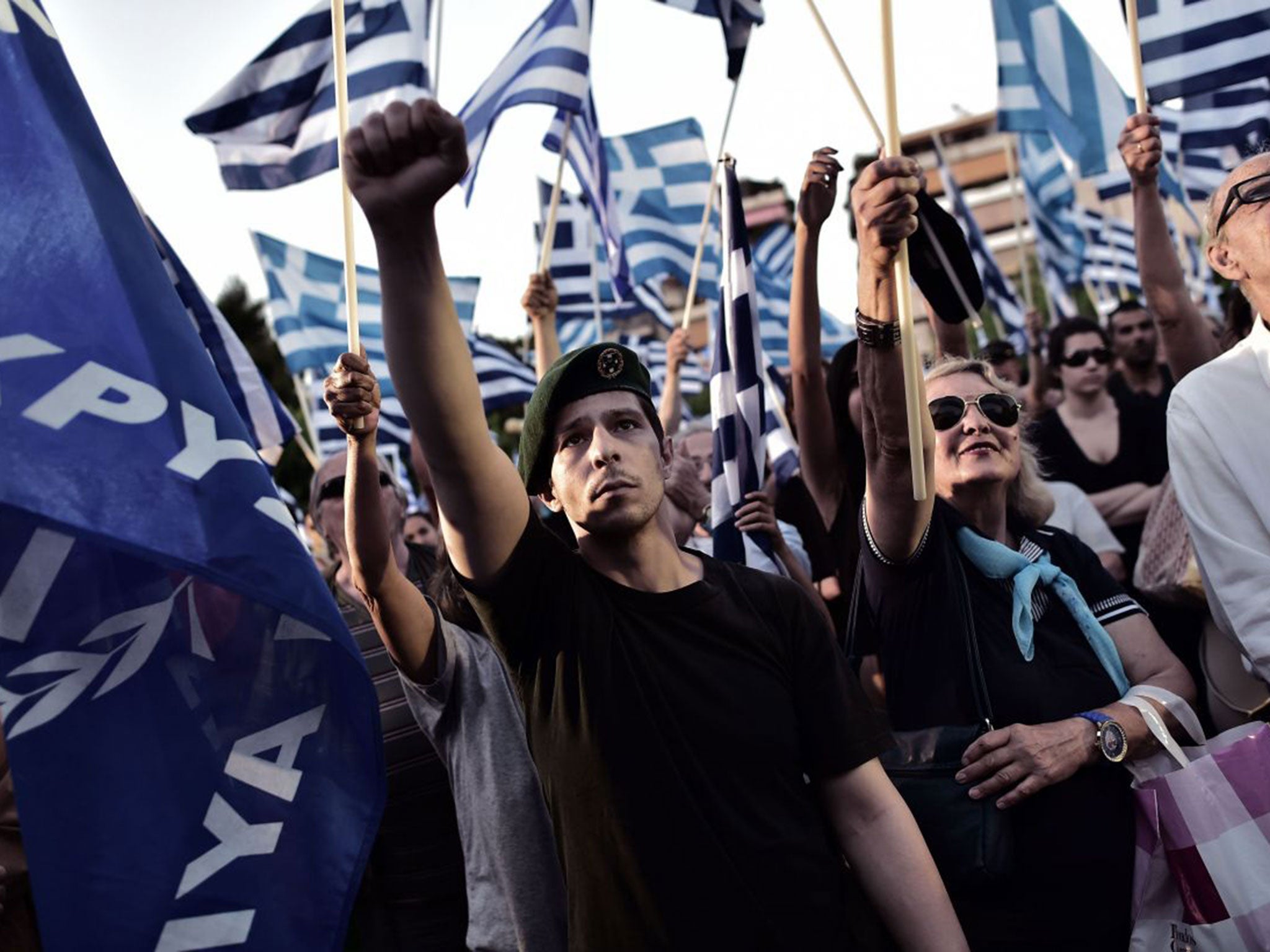European elections 2014 Q&A: Who are the far-right parties and can they bring down the EU and its governments?
Significant gains by fringe parties raise many questions. Charlotte McDonald-Gibson provides the answers

Marine Le Pen and other Eurosceptic leaders have said they want to bring down the EU from the inside.
So is the bloc’s implosion just a matter of time?
Hardly. Despite the blustering rhetoric from Ms Le Pen and Nigel Farage, pro-European forces still dominate the 751-seat parliament.
The centre-right European People’s Party has 213 seats in current projections, and the Socialists and Democrats group – which includes Labour MEPs – has 190 seats. Combine that with the 117 seats shared between the Liberals and the Greens, and there is a clear majority of moderates. These parties are also united in their abhorrence of the extreme right, so have extra incentive to form alliances to block the influence of the fringe parties.
Who exactly are these fringe parties that have made the gains?
They cover a wide political spectrum from far left to far right. Currently there are seven recognised political groups in parliament: the four mainstream pro-European parties, a hard-left grouping and two Eurosceptic alliances. Ukip and the far-right Danish People’s Party sit with one of the anti-EU groups. Parties on the far left, such as Syriza in Greece, are part of the hard-left group, where Sinn Fein’s three new MEPs will also sit.
There are many parties that have MEPs for the first time. These include those with neo-Nazi traits, such as Greece’s Golden Dawn and the German radical National Democratic Party. On the far left, Italy’s anti-establishment Five Star Movement will have its first seats. Spain also saw a proliferation of smaller parties. Finally you have the more established populist parties, such as the Front National and Geert Wilders’ Freedom Party in the Netherlands. They sat as independents in the last parliament, and a big question is what their plans are now.
Are all these far-right parties going to join together into a supergroup?
That’s the plan of Ms Le Pen and Mr Wilders, who want to form a new official political group in the parliament, which means more funds and more influence. They need at least 25 MEPs from seven member states. So far the Austrian Freedom Party, the Belgian Vlaams Belang, the Swedish Democrats and Italy’s Northern League have suggested they will join them. That means they only need to convince one more party. The hard right is however beset with divisions – something which is likely to dent their power.
Ms Le Pen and Mr Wilders want nothing to do with radical extremists such as Golden Dawn or Jobbik in Hungary. However, some of the anti-immigration rhetoric coming from the French and Dutch far right is too toxic for other Eurosceptic parties. Ukip and a new German anti-euro party have both refused to get on board. One problem is they all have differing visions for the future: some want to withdraw their countries from the EU, others want reform, while some just want to stir up the political divides at home.
Is the result so catastrophic that it will bring down any governments?
While the calamitous result for France dominates the headlines, there have been serious blows for ruling parties across the EU. In Greece, the far-left Syriza party won the vote, pushing Prime Minister Antonis Samaras’ New Democracy into second place. Opposition leader Alexis Tsipras has asked the President to call early elections, but the government is resisting.
Denmark’s ruling party was also pushed into second place by populists, this time on the far right, with the anti-immigration Danish People’s Party getting four seats compared with three for the governing party. It was not all bad news for incumbents. Italy’s youthful new Prime Minister, Matteo Renzi, saw off a challenge by the anti-establishment Five-Star Movement, while Germany’s Angela Merkel also recorded a comfortable win for her Christian Democratic Union.
What happens next?
All eyes are on a meeting of the 28 heads of state, who will sit down for what will be a tense dinner in Brussels on Tuesday night. This will be the first discussion on the policy priorities for the EU over the next five years, and will be held under the shadow of the far-right gains.
Tuesday also marks the start of what are expected to be protracted negotiations between the new European Parliament and the national leaders over who should be the next president of the European Commission – the most powerful role in the EU. The parliament wants the president to come from one of the main political groups, but many national leaders would rather pick their own politically neutral candidate, and a power struggle seems inevitable.
Subscribe to Independent Premium to bookmark this article
Want to bookmark your favourite articles and stories to read or reference later? Start your Independent Premium subscription today.

Join our commenting forum
Join thought-provoking conversations, follow other Independent readers and see their replies